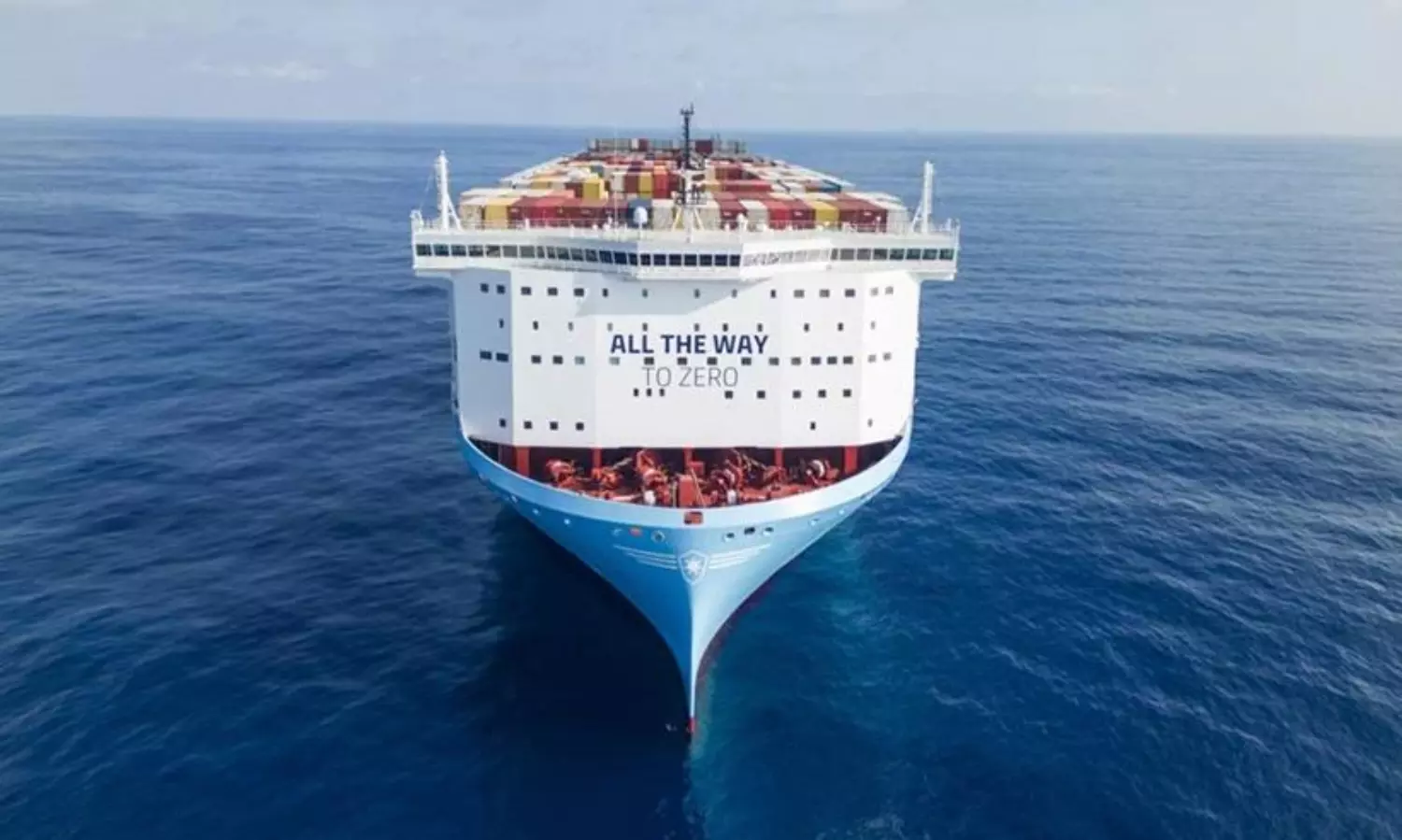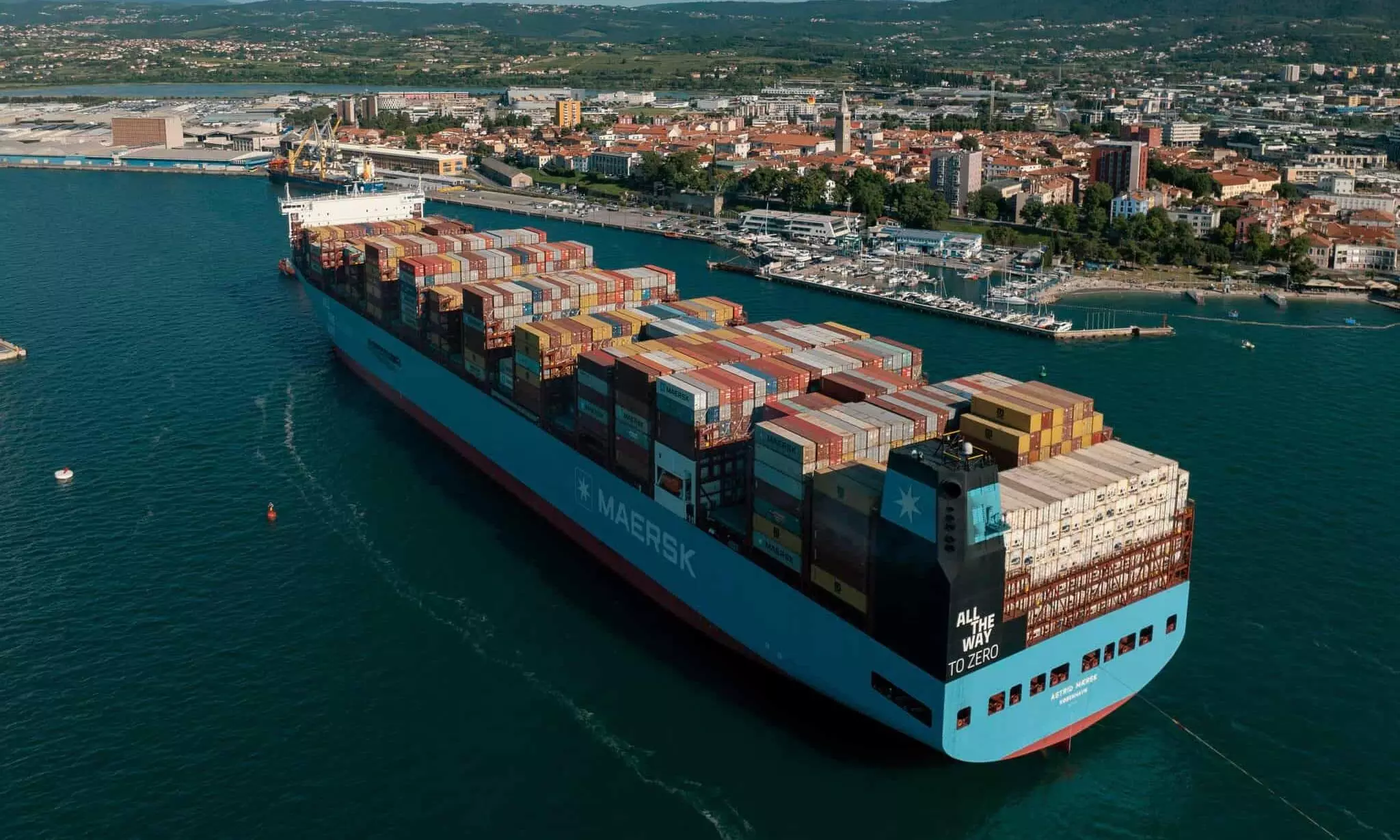Maersk, Nike to christen green vessel at LA Port in August
Fifth container vessel in Maersk’s fleet that can sail on green methanol, an alternative to conventional bunker oil

Powered by green fuel* for its maiden voyage and capable of carrying more than 16,000 containers, Maersk's new vessel will get its name at a ceremony at the Port of Los Angeles Outer Harbour on August 27.
Vincent Clerc, CEO, Maersk will be joined by special guest speakers from Nike and leading state and local officials, says an official release. "As a partner in the name-giving event, Nike shares Maersk’s deep commitment to decarbonising supply chains."
Venkatesh Alagirisamy, Chief Supply Chain Officer, Nike says: "Nike is committed to protecting the future of sport and we leverage science-based targets to guide us through our Move to Zero journey. Operating one of the largest supply chains in the world, we have a responsibility to advance the innovation and use of more sustainable methods that get us closer to zero carbon and zero waste. By working with suppliers like Maersk, who share our commitment to sustainability, we are scaling our use of biofuels in ocean transportation, our main first-mile delivery channel."
Charles van der Steene, Regional President, Maersk North America adds: "This event is not only an opportunity to celebrate a remarkable engineering achievement but the chance to highlight that we can navigate towards more sustainable supply chains if we work together."
This is the fifth container vessel in Maersk’s fleet that can sail on green methanol, an alternative to conventional bunker oil, the release added. "Maersk continues to explore and study various alternative fuels in pursuit of its goal to reach net-zero greenhouse gas emissions by 2040."
In addition, Maersk's new container ships have several design features that set them apart from traditional container vessels, including the positioning of its crew accommodation and bridge at the bow and a single funnel at the stern. These design elements allow for increased container capacity and improved efficiency during port operations. Maersk has ordered 20 additional methanol-enabled vessels, the release added.
(*Maersk defines green fuels as fuels with at least 65 percent reductions in greenhouse gas (GHG) emissions on a lifecycle basis compared to fossil reference fuels.)



